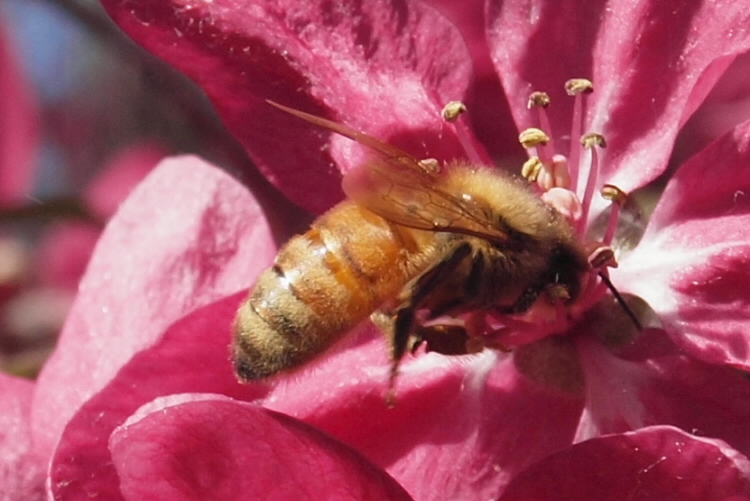University of Otago geneticist Peter Dearden is using the bee genome to develop a bee-friendly insecticide.
Listen to this RNZ audio Bee-friendly insecticides from April 2014.
Duration: 21:46
Peter Dearden describes honey bees as the most important insects on Earth because of the role they play as pollinators. But bees are in trouble worldwide. In New Zealand, the main threat is the varroa mite, which has decimated feral bee colonies throughout the country, but bees are also unintentional targets of the chemicals we use to control insect pests that can damage crops.
Sequencing the bee genome
The importance of bees is reflected in the fact that they are the second insect, after the fruit fly Drosophila, whose complete genome has been sequenced. Having studied the larval development of bees and other fundamental aspects of bee physiology and genetics, Peter is now using the knowledge gleaned from the bee genome to develop insecticides that remain effective against pest insects but spare bees.
Programme details: Our Changing World.
Related content
Peter was also involved in the work on getting the complete genome of the pea aphid. Find out more in this article, Aphid genome could unlock new weapons.
Read about honey bees and the varroa mite problem.
We have lots of content under our bee topic and pollination concept.
Insecticides can pose a threat to non-target species like bees and other pollinators. Neonicotinoid insecticides are a relatively new class of powerful synthetic chemicals that were developed to limit harm to non-target species but now emerging evidence suggests otherwise.

